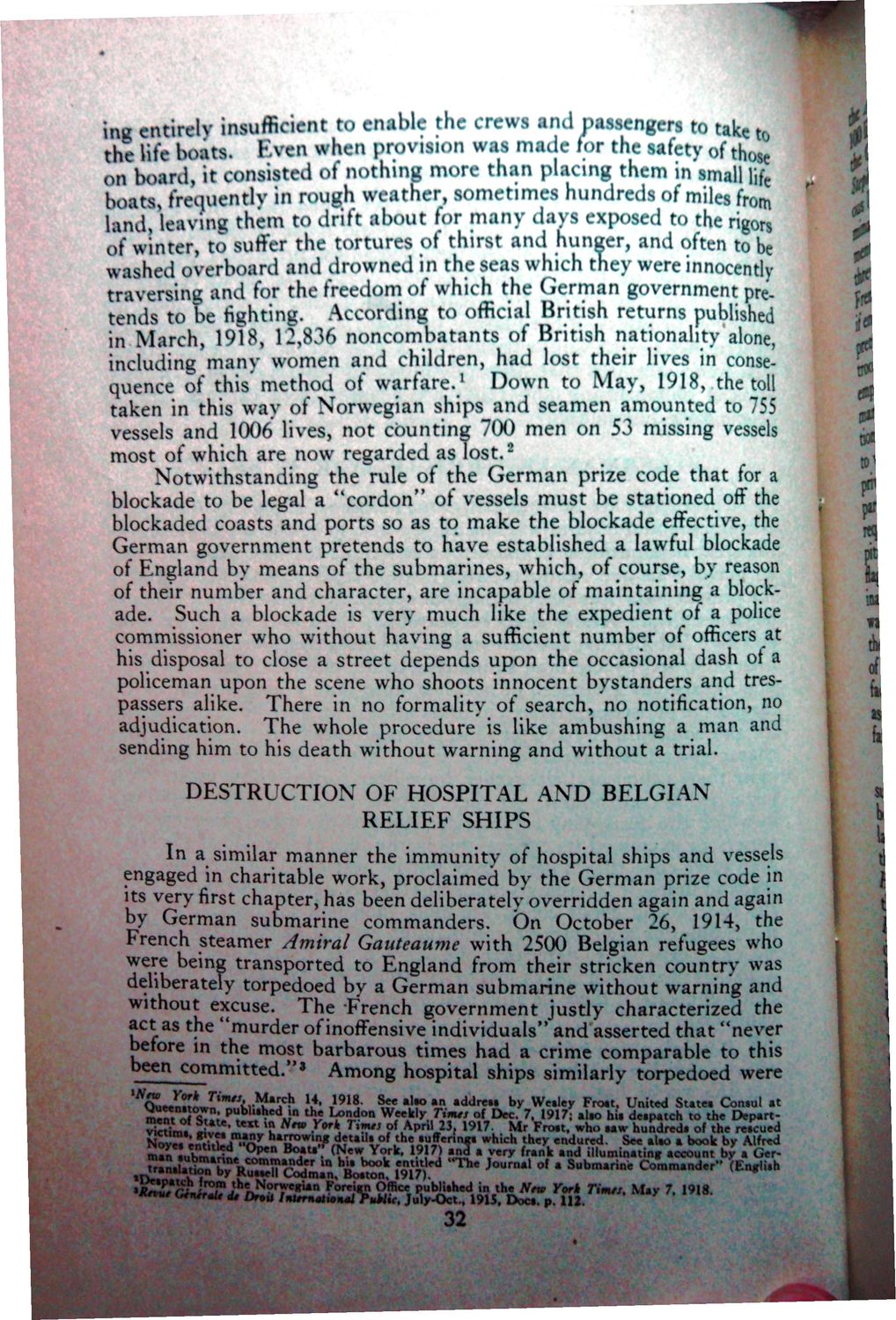| |
| |
Caption: War Publications - WWI Compilation 1923 - Article 14
This is a reduced-resolution page image for fast online browsing.

EXTRACTED TEXT FROM PAGE:
cntireiv insufficient to enable the crews and passengers to take to mg the life boats. Even when provision was made (or the safety of those c on board, it consisted of nothing more than placing them in small life boats, frequently in rough weather, sometimes hundreds of miles from land, leaving them to drift about for many davs exposed to the rigors of winter, to suffer the tortures of thirst and hunger, and often to be washed overboard and drowned in the seas which they were innocently traversing and for the freedom of which the German government pre. tends to be fighting. According to official British returns published in March, 1918, 12,836 noncombatants of British nationahty'alone, including many women and children, had lost their lives in conse1 quence of this method of warfare. Down to May, 1918, the toll taken in this way of Norwegian ships and seamen amounted to 755 vessels and 1006 lives, not counting 700 men on 53 missing vessels 2 most of which are now regarded as lost. Notwithstanding the rule of the German prize code that for a blockade to be legal a "cordon" of vessels must be stationed off the blockaded coasts and ports so as to make the blockade effective, the German government pretends to have established a lawful blockade of England by means of the submarines, which, of course, by reason of their number and character, are incapable of maintaining a blockade. Such a blockade is very much like the expedient of a police commissioner who without having a sufficient number of officers at his disposal to close a street depends upon the occasional dash of a policeman upon the scene who shoots innocent bystanders and trespassers alike. There in no formality of search, no notification, no adjudication. The whole procedure is like ambushing a man and sending him to his death without warning and without a trial. DESTRUCTION OF HOSPITAL AND BELGIAN R E L I E F SHIPS In a similar manner the immunity of hospital ships and vessels engaged in charitable work, proclaimed by the German prize code in its very first chapter, has been deliberately overridden again and again by German submarine commanders. On October 26, 1914, the French steamer Amiral Gauteaume with 2500 Belgian refugees who e n rTru k * S transported to England from their stricken country was deliberately torpedoed by a German submarine without warning and without excuse. The French government justly characterized the act as the "murder of inoffensive individuals" and asserted that "never before in the most barbarous times had a crime comparable to this been committed."* Among hospital ships similarly torpedoed were ^ ^ J Z i J ^ X ^ i ^ 1 1 tfj r !- n $J? •&? l . o Vf T ment cf s J rC;, ^ X t ? ^Ntw **$ ¥ tT% S &K i?" " l f °l C f A ?i«?™: . * l i ? y»K V« ? . Pril 23. 1917. 191 n mddr W lc «D c c *>y l 9" 7 X l***** " 7 1 i0 hii United Statet Consul at * « « * <*«P»tch to the DepartMr Frott, who saw hundreds of the rescued lustell Codman, Bosi _ le Norwegian Foreign Office published in the Ne DfU IntfrnationsIPiMic, July-Oct., 1915, Docs 32
| |